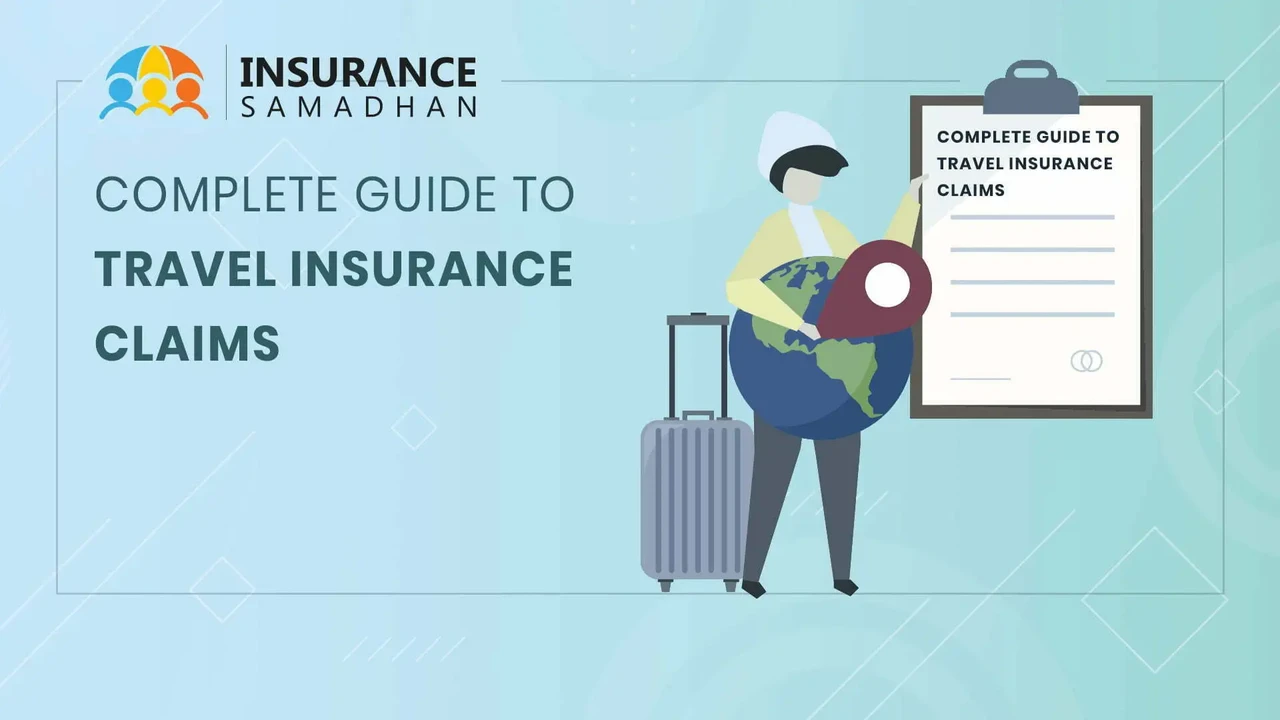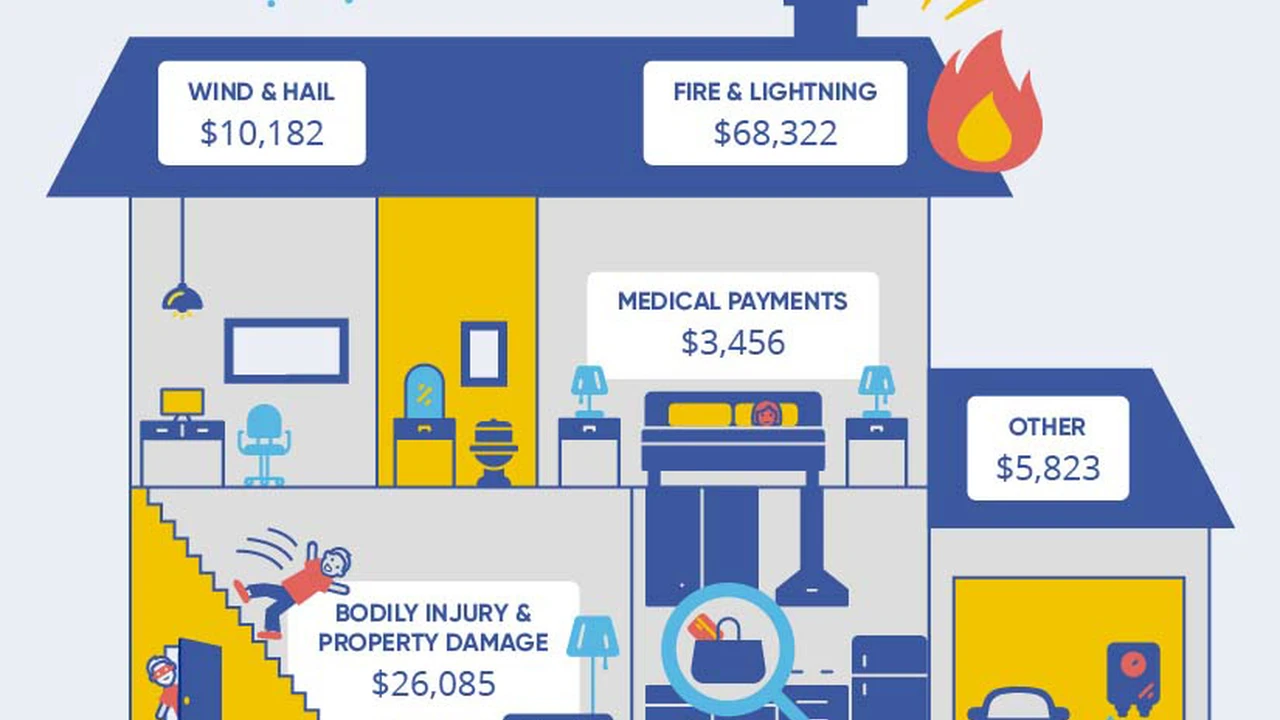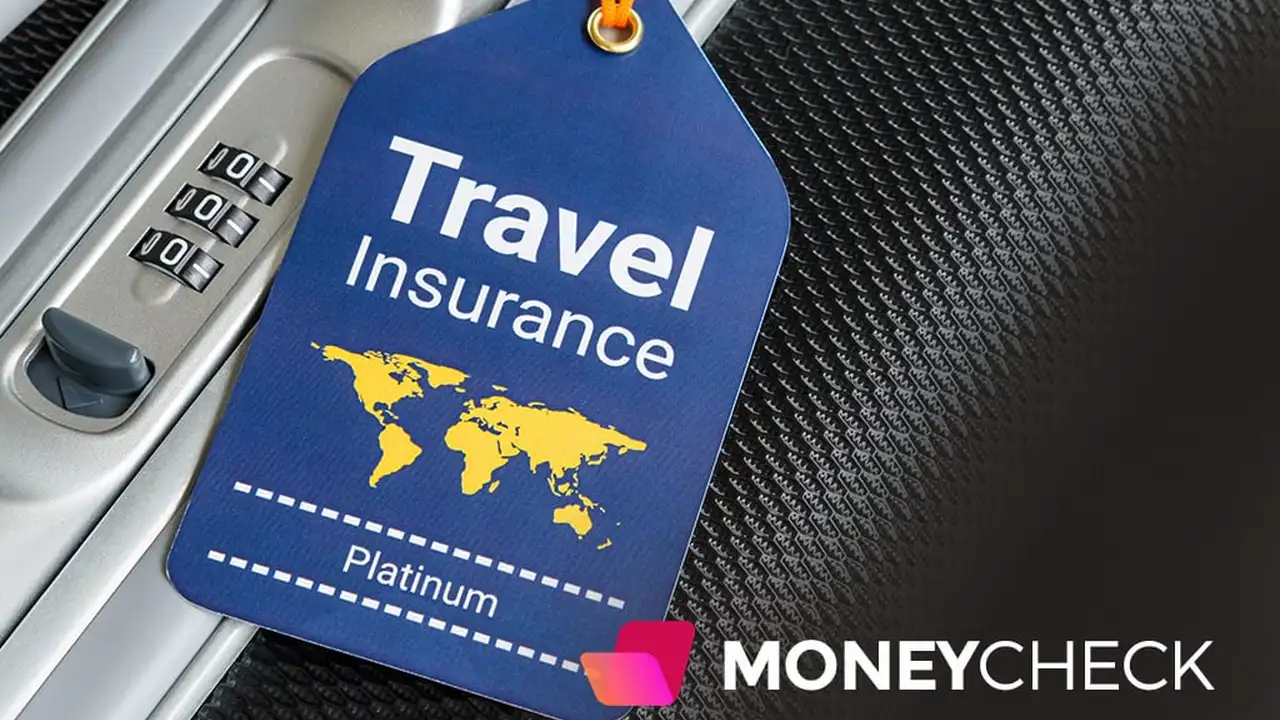The Ultimate Guide to Travel Insurance Claims

Understanding Travel Insurance Claims The Foundation
So you've returned from your trip, perhaps with sun-kissed skin and a camera roll overflowing with memories. But wait, there's a lingering issue: a medical bill, a lost suitcase, or a cancelled flight. This is where travel insurance claims come into play. But navigating the claims process can feel daunting. Let's break down the fundamentals to help you understand what's involved.
First, it's crucial to understand what travel insurance actually covers. Policies vary widely, so reading your policy document carefully is paramount. Common coverage areas include:
- Medical Expenses: This covers doctor visits, hospital stays, and emergency medical transportation due to illness or injury while traveling.
- Trip Cancellation/Interruption: This reimburses you for non-refundable trip costs if you have to cancel or cut short your trip due to covered reasons like illness, injury, or a family emergency.
- Lost or Stolen Baggage: This covers the cost of replacing lost, stolen, or damaged luggage and personal belongings.
- Travel Delays: This reimburses you for expenses incurred due to travel delays, such as meals and accommodation.
- Emergency Evacuation: This covers the cost of emergency medical evacuation to the nearest appropriate medical facility.
Understanding these coverages is the first step towards a successful claim. Next, familiarize yourself with the claims process itself. This typically involves notifying your insurance provider, gathering documentation, and submitting a claim form.
Documenting Your Loss Essential Steps for a Successful Claim
Documentation is the bedrock of any successful travel insurance claim. Without proper evidence, your claim is likely to be denied. So, what kind of documentation do you need?
- Policy Document: Keep a copy of your travel insurance policy with you, both physically and digitally. This will contain your policy number and details of your coverage.
- Medical Records: If you're claiming for medical expenses, gather all medical reports, doctor's notes, hospital bills, and receipts for medications.
- Police Report: If you're claiming for lost or stolen items, obtain a police report from the local authorities.
- Proof of Ownership: Provide proof of ownership for any lost or stolen items, such as receipts, credit card statements, or photos.
- Travel Itinerary: Keep a copy of your travel itinerary, including flight tickets, hotel reservations, and tour confirmations.
- Cancellation/Delay Documentation: If you're claiming for trip cancellation or delay, obtain documentation from the airline, hotel, or tour operator explaining the reason for the cancellation or delay.
- Claim Form: Complete the claim form accurately and thoroughly. Provide all the information requested and sign the form.
Organize all your documentation meticulously. Make copies of everything and keep the originals in a safe place. This will make the claims process much smoother.
Filing Your Travel Insurance Claim A Step-by-Step Guide
Now that you've gathered all the necessary documentation, it's time to file your claim. Here's a step-by-step guide to help you navigate the process:
- Notify Your Insurance Provider: Contact your insurance provider as soon as possible after the incident occurs. Many policies have a time limit for reporting claims.
- Obtain a Claim Form: Request a claim form from your insurance provider. You can usually download it from their website or have it sent to you by email or mail.
- Complete the Claim Form: Fill out the claim form accurately and thoroughly. Provide all the information requested and sign the form.
- Gather Supporting Documentation: Gather all the supporting documentation you've collected, such as medical records, police reports, and receipts.
- Submit Your Claim: Submit your claim form and supporting documentation to your insurance provider. You can usually submit it online, by email, or by mail.
- Follow Up: Follow up with your insurance provider to check on the status of your claim. Keep a record of all communication with your insurance provider.
Be patient. The claims process can take time, especially if your claim is complex. Don't hesitate to contact your insurance provider if you have any questions or concerns.
Travel Insurance Claim Denials Understanding and Appealing
Unfortunately, not all travel insurance claims are approved. If your claim is denied, don't despair. You have the right to appeal the decision. Understanding the reasons for denial is the first step in preparing a successful appeal.
Common reasons for claim denials include:
- Exclusions: Your claim may be denied if it falls under an exclusion in your policy. Common exclusions include pre-existing medical conditions, participation in extreme sports, and acts of war or terrorism.
- Lack of Documentation: Your claim may be denied if you don't provide sufficient documentation to support your claim.
- Failure to Notify: Your claim may be denied if you fail to notify your insurance provider within the required time frame.
- False Information: Your claim may be denied if you provide false or misleading information on your claim form.
- Policy Limits: Your claim may be denied if the amount you're claiming exceeds the policy limits.
If your claim is denied, carefully review the denial letter to understand the reason for the denial. Then, gather any additional documentation that supports your claim and write a letter of appeal. In your appeal letter, clearly explain why you believe your claim should be approved and provide any additional information that supports your case. Be polite and professional in your communication with your insurance provider.
Specific Travel Insurance Product Recommendations and Use Cases
Choosing the right travel insurance can be overwhelming. Let's explore some specific product recommendations and their ideal use cases.
World Nomads Travel Insurance: For Adventurous Travelers
World Nomads is a popular choice for adventurous travelers, offering comprehensive coverage for a wide range of activities, including hiking, skiing, and scuba diving. They offer two main plans: Standard and Explorer. The Explorer plan provides higher coverage limits and includes coverage for more adventurous activities.
Use Cases:
- Backpacking trips
- Adventure sports
- Long-term travel
Key Features:
- Coverage for adventurous activities
- 24/7 emergency assistance
- Option to extend coverage while traveling
Pricing: Varies depending on the length of your trip, your destination, and the level of coverage you choose. Expect to pay more for the Explorer plan and for longer trips.
Allianz Travel Insurance: For Comprehensive Coverage
Allianz Travel Insurance offers a wide range of plans to suit different needs and budgets. Their plans typically include coverage for trip cancellation, trip interruption, medical expenses, and lost baggage. They also offer optional add-ons, such as rental car collision coverage.
Use Cases:
- Family vacations
- Business trips
- Cruises
Key Features:
- Comprehensive coverage
- 24/7 emergency assistance
- Optional add-ons
Pricing: Varies depending on the plan you choose, the length of your trip, and your destination. They offer different levels of coverage to fit various budgets.
Travel Guard Travel Insurance: For Trip Cancellation Protection
Travel Guard is known for its robust trip cancellation and interruption coverage. Their plans often include coverage for a wide range of reasons, such as illness, injury, and family emergencies. They also offer optional add-ons, such as "cancel for any reason" coverage.
Use Cases:
- Trips with significant upfront costs
- Trips with a high risk of cancellation
- Travel during hurricane season
Key Features:
- Strong trip cancellation coverage
- 24/7 emergency assistance
- Optional "cancel for any reason" coverage
Pricing: Varies depending on the plan you choose, the length of your trip, and your destination. "Cancel for any reason" coverage typically adds to the cost.
Comparing Travel Insurance Products Features and Pricing
Choosing between different travel insurance providers and plans can be confusing. Here's a comparison of some key features and pricing considerations.
Coverage Limits: Pay attention to the coverage limits for different benefits, such as medical expenses, trip cancellation, and lost baggage. Make sure the limits are adequate for your needs.
Deductibles: A deductible is the amount you have to pay out-of-pocket before your insurance coverage kicks in. Plans with lower deductibles typically have higher premiums.
Exclusions: Carefully review the exclusions in your policy. Make sure you understand what's not covered.
Pre-Existing Conditions: Some policies exclude coverage for pre-existing medical conditions. If you have a pre-existing condition, look for a policy that covers it or offers a waiver.
Activities Covered: If you plan to participate in adventurous activities, make sure your policy covers them.
Customer Service: Read reviews and check the customer service ratings of different insurance providers. You want to choose a provider that is responsive and helpful in case you need to file a claim.
Price: Compare prices from different providers for similar levels of coverage. Don't just choose the cheapest policy. Make sure it provides adequate coverage for your needs.
To illustrate, here's a simplified comparison table:
| Feature | World Nomads | Allianz | Travel Guard |
|---|---|---|---|
| Medical Coverage | Comprehensive, including adventure activities | Comprehensive | Comprehensive |
| Trip Cancellation | Included | Included | Strong |
| Lost Baggage | Included | Included | Included |
| Adventure Activities | Excellent coverage | May require add-on | May require add-on |
| Price | Mid-range to higher | Varies widely | Varies widely |
Remember to get quotes specific to your trip details for the most accurate comparison.
Navigating Common Travel Insurance Claim Scenarios
Let's delve into some common travel insurance claim scenarios and how to navigate them.
Scenario 1: Unexpected Medical Emergency
You're on vacation and suddenly develop a severe illness requiring hospitalization. This is a stressful situation, but knowing how to handle the insurance claim can alleviate some of the burden.
Steps:
- Seek Medical Attention: Your priority is your health. Seek immediate medical attention.
- Contact Your Insurance Provider: As soon as possible, contact your insurance provider to inform them of the situation. They can provide guidance and assistance.
- Document Everything: Keep copies of all medical records, bills, and receipts.
- Complete the Claim Form: Fill out the claim form accurately and thoroughly.
- Submit Your Claim: Submit your claim form and supporting documentation to your insurance provider.
Key Considerations:
- Make sure your policy covers medical expenses in the country you're visiting.
- Understand the policy limits for medical coverage.
- If you have a pre-existing condition, make sure it's covered by your policy.
Scenario 2: Lost or Stolen Luggage
Your luggage is lost or stolen during your trip. This can be a frustrating experience, especially if you're traveling with valuable items.
Steps:
- Report the Loss: Report the loss to the airline, hotel, or local authorities as soon as possible. Obtain a written report.
- Document Everything: Keep copies of your flight tickets, baggage tags, and receipts for any items you purchased to replace the lost items.
- File a Claim: File a claim with your travel insurance provider.
- Provide Proof of Ownership: Provide proof of ownership for the lost items, such as receipts or credit card statements.
Key Considerations:
- Understand the policy limits for lost or stolen baggage.
- Check if your policy covers the depreciation of your belongings.
- Some policies may require you to file a claim with the airline before filing a claim with your insurance provider.
Scenario 3: Trip Cancellation Due to Illness
You have to cancel your trip due to illness or injury. This can be a disappointing situation, especially if you've been looking forward to your trip for a long time.
Steps:
- Notify Your Travel Providers: Notify the airline, hotel, and tour operator as soon as possible to cancel your reservations.
- Obtain Documentation: Obtain a doctor's note confirming your illness or injury.
- File a Claim: File a claim with your travel insurance provider.
- Provide Documentation: Provide documentation of your trip costs, such as flight tickets, hotel reservations, and tour confirmations.
Key Considerations:
- Make sure your policy covers trip cancellation due to illness or injury.
- Understand the policy limits for trip cancellation coverage.
- Some policies may require you to cancel your trip within a certain time frame to be eligible for coverage.
Maximizing Your Chances of a Successful Claim Tips and Best Practices
Want to increase your odds of a successful travel insurance claim? Here are some essential tips and best practices.
- Read Your Policy Carefully: Understanding your policy is the most crucial step. Know what's covered, what's excluded, and what the policy limits are.
- Keep Detailed Records: Document everything related to your trip, including your itinerary, receipts, and medical records.
- Notify Your Insurance Provider Promptly: Don't delay in notifying your insurance provider of an incident. Many policies have time limits for reporting claims.
- Provide Accurate Information: Be honest and accurate when completing your claim form. Providing false information can lead to denial of your claim.
- Be Organized: Keep all your documentation organized and easily accessible.
- Be Persistent: Don't give up if your claim is initially denied. You have the right to appeal the decision.
- Seek Professional Help: If you're struggling to navigate the claims process, consider seeking help from a travel insurance claims specialist.
The Future of Travel Insurance Claims Technology and Trends
The travel insurance industry is constantly evolving, with technology playing an increasingly important role. Here are some trends shaping the future of travel insurance claims.
- AI-Powered Claims Processing: Artificial intelligence is being used to automate claims processing, making it faster and more efficient.
- Mobile Claims Filing: Many insurance providers now offer mobile apps that allow you to file claims directly from your smartphone.
- Real-Time Assistance: Some providers offer real-time assistance through chat or video conferencing, providing immediate support during a crisis.
- Personalized Insurance: Technology is enabling insurance providers to offer more personalized policies tailored to individual needs and travel styles.
- Blockchain Technology: Blockchain is being explored as a way to improve the transparency and security of travel insurance claims.
These technological advancements are making the claims process more convenient, efficient, and transparent for travelers.
Understanding Policy Exclusions Common Pitfalls to Avoid
Policy exclusions are the fine print that can trip up even the most diligent travelers. Understanding these exclusions is critical to avoiding claim denials.
Common exclusions include:
- Pre-Existing Medical Conditions: Many policies exclude coverage for pre-existing medical conditions unless specifically waived.
- Participation in Extreme Sports: Some policies exclude coverage for injuries sustained while participating in extreme sports, such as skydiving or bungee jumping.
- Acts of War or Terrorism: Most policies exclude coverage for incidents related to acts of war or terrorism.
- Illegal Activities: Policies typically exclude coverage for incidents that occur while you're engaging in illegal activities.
- Intoxication: Claims related to incidents that occur while you're under the influence of alcohol or drugs may be denied.
- Unattended Belongings: Policies may not cover lost or stolen belongings if they were left unattended.
Carefully review the exclusions in your policy to understand what's not covered. If you have any concerns, contact your insurance provider for clarification.
Travel Insurance Claims and COVID-19 Considerations
The COVID-19 pandemic has significantly impacted travel insurance. Here's what you need to know about travel insurance claims related to COVID-19.
- Trip Cancellation: Some policies may cover trip cancellation due to COVID-19, but coverage varies widely. Check your policy for specific details.
- Medical Expenses: Most policies now cover medical expenses related to COVID-19, but coverage limits may vary.
- Quarantine Expenses: Some policies may cover quarantine expenses if you test positive for COVID-19 while traveling.
- Travel Advisories: Be aware of travel advisories issued by your government. Some policies may not cover travel to countries with active travel advisories.
When purchasing travel insurance during the pandemic, look for policies that specifically address COVID-19-related risks. Read the fine print carefully and understand what's covered and what's not.
:max_bytes(150000):strip_icc()/277019-baked-pork-chops-with-cream-of-mushroom-soup-DDMFS-beauty-4x3-BG-7505-5762b731cf30447d9cbbbbbf387beafa.jpg)





